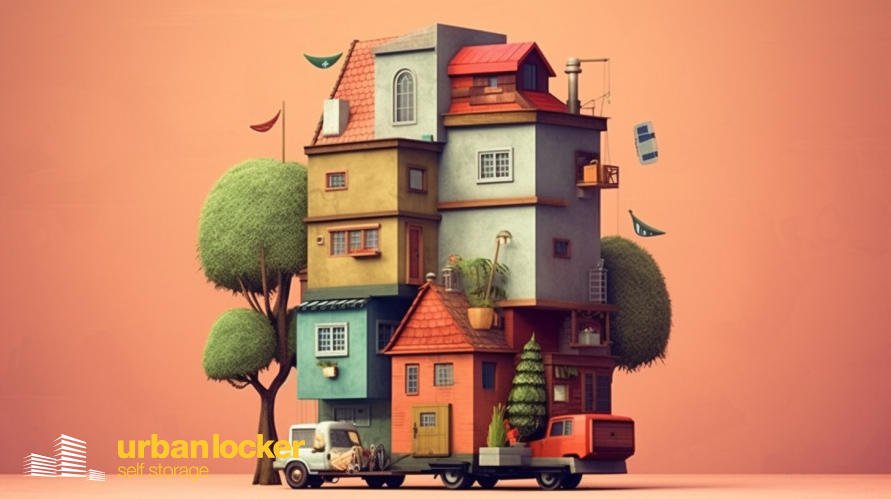Downsizing tips

Downsizing your home is a significant decision that involves more than just moving to a smaller space. It’s about reevaluating your lifestyle, possessions, and priorities. In this article, we will explore the reasons behind downsizing and provide practical tips to make the most of this transition. From deciding what to keep, throw out, sell, or store, to understanding the broader implications of downsizing, we’ll guide you through this life-changing process.
Why People Downsize
There are several reasons why individuals or families choose to downsize. For many, it’s a practical decision as they enter retirement and prefer a smaller, more manageable living space.
Others downsize to reduce living expenses or to live a simpler, less cluttered lifestyle. Environmental concerns and the desire for a more sustainable lifestyle also motivate some people to downsize.
Whatever the reason, downsizing offers an opportunity to reassess your needs and priorities.
Tips for Making the Most of Downsizing
View downsizing as an opportunity for a fresh start. It’s a chance to live more efficiently and focus on what truly matters.
Take the time to carefully plan your move. Consider the layout and storage options of your new home and think about how your current belongings will fit into this new space.
Be realistic about the space you are moving into and what it can accommodate. This understanding will be crucial when deciding what to keep and what to let go of.
Deciding What Items to Keep
Identify the items that are essential to your daily life and well-being. Focus on keeping things that are functional or hold significant sentimental value. When space is limited, prioritize items that serve multiple purposes or are compact and easy to store.
Deciding What Items to Throw Out
Items that are broken, outdated, or no longer used should be the first to go. Be honest about the likelihood of using these items in the future. This process can be challenging but is essential for creating space and reducing clutter in your new home.
Deciding What Items to Sell
Selling items can be a way to declutter and generate extra income. Consider selling furniture that won’t fit in the new space, duplicate items, or things you haven’t used in a long time. Online marketplaces, garage sales, and consignment shops are good avenues for selling used items.
Deciding What Items to Put into Storage
For items you can’t take with you but aren’t ready to sell or throw away, storage is an option. This could include seasonal items, heirlooms, or things you plan to give to family members in the future. Be selective about what you choose to store, as storage costs can add up over time.
If you need to put any of your valuables into a storage unit, please consider using us. We offer self-storage in London and have storage facilities on Old Street and Islington in East London.
Additional Considerations
Along with physical belongings, consider downsizing your lifestyle. This could mean adopting simpler routines, reducing financial commitments, or focusing more on experiences rather than possessions.
Downsizing can be an emotional process. Be prepared for the mixed feelings that come with parting from possessions and memories. It’s important to acknowledge these feelings as part of the transition.
Don’t hesitate to ask for help from family, friends, or professionals. They can offer practical assistance and emotional support during this time.
